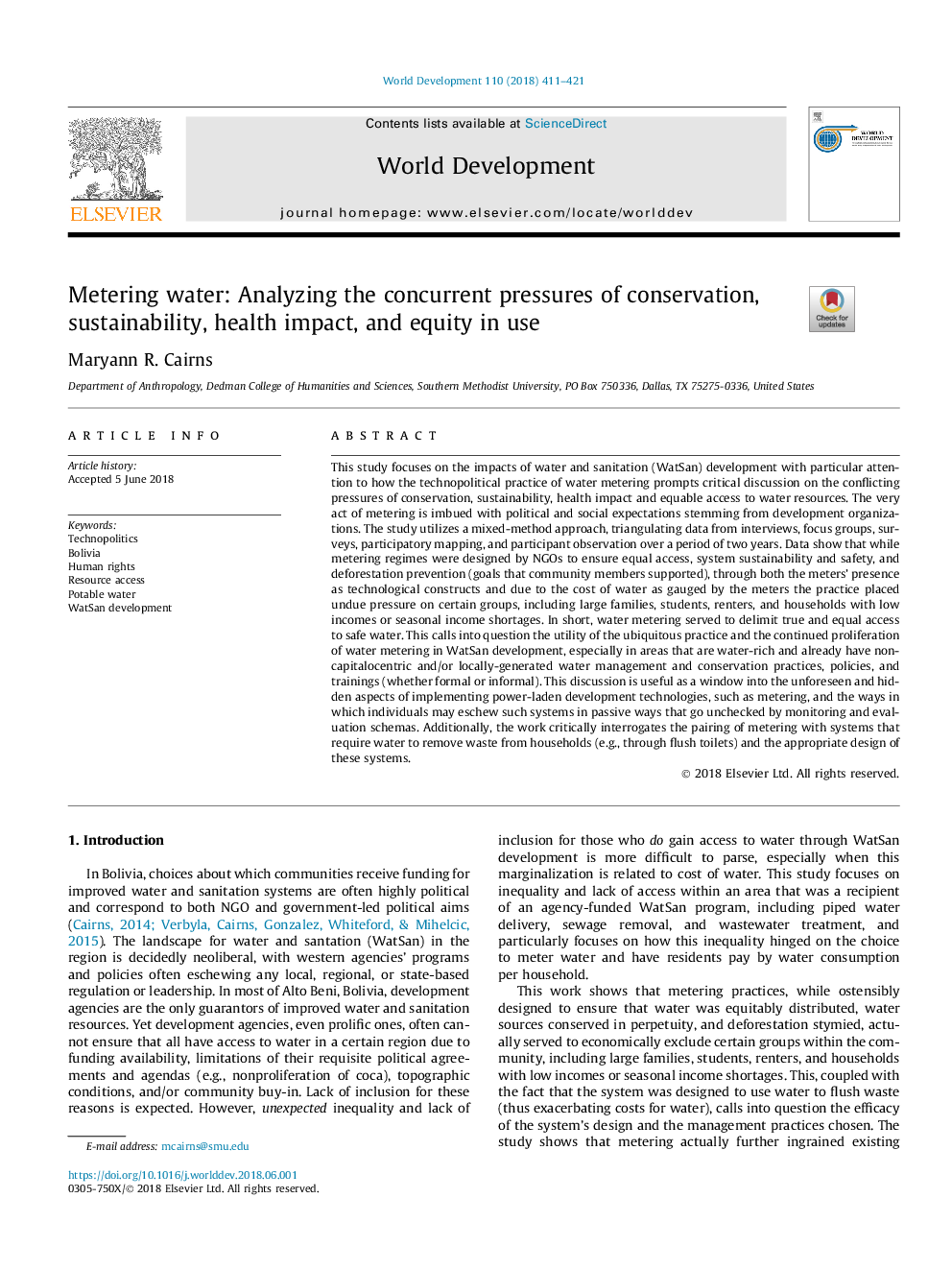| کد مقاله | کد نشریه | سال انتشار | مقاله انگلیسی | نسخه تمام متن |
|---|---|---|---|---|
| 7391479 | 1481108 | 2018 | 11 صفحه PDF | دانلود رایگان |
عنوان انگلیسی مقاله ISI
Metering water: Analyzing the concurrent pressures of conservation, sustainability, health impact, and equity in use
ترجمه فارسی عنوان
آب اندازه گیری: تجزیه و تحلیل فشار همزمان حفاظت، پایداری، تاثیر سلامت، و عدالت در استفاده
دانلود مقاله + سفارش ترجمه
دانلود مقاله ISI انگلیسی
رایگان برای ایرانیان
کلمات کلیدی
موضوعات مرتبط
علوم انسانی و اجتماعی
اقتصاد، اقتصادسنجی و امور مالی
اقتصاد و اقتصادسنجی
چکیده انگلیسی
This study focuses on the impacts of water and sanitation (WatSan) development with particular attention to how the technopolitical practice of water metering prompts critical discussion on the conflicting pressures of conservation, sustainability, health impact and equable access to water resources. The very act of metering is imbued with political and social expectations stemming from development organizations. The study utilizes a mixed-method approach, triangulating data from interviews, focus groups, surveys, participatory mapping, and participant observation over a period of two years. Data show that while metering regimes were designed by NGOs to ensure equal access, system sustainability and safety, and deforestation prevention (goals that community members supported), through both the meters' presence as technological constructs and due to the cost of water as gauged by the meters the practice placed undue pressure on certain groups, including large families, students, renters, and households with low incomes or seasonal income shortages. In short, water metering served to delimit true and equal access to safe water. This calls into question the utility of the ubiquitous practice and the continued proliferation of water metering in WatSan development, especially in areas that are water-rich and already have non-capitalocentric and/or locally-generated water management and conservation practices, policies, and trainings (whether formal or informal). This discussion is useful as a window into the unforeseen and hidden aspects of implementing power-laden development technologies, such as metering, and the ways in which individuals may eschew such systems in passive ways that go unchecked by monitoring and evaluation schemas. Additionally, the work critically interrogates the pairing of metering with systems that require water to remove waste from households (e.g., through flush toilets) and the appropriate design of these systems.
ناشر
Database: Elsevier - ScienceDirect (ساینس دایرکت)
Journal: World Development - Volume 110, October 2018, Pages 411-421
Journal: World Development - Volume 110, October 2018, Pages 411-421
نویسندگان
Maryann R. Cairns,
